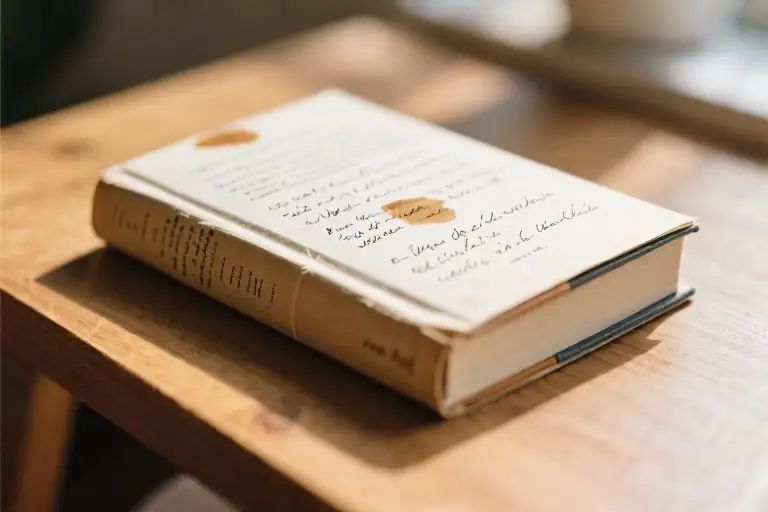The subway screeches to a halt as someone jostles your arm, spilling latte onto your last clean shirt. Your phone buzzes – another passive-aggressive email from your micromanaging boss. Later that night, a relative’s vaccine conspiracy theory post triggers eye-rolling nausea. You grip your phone, thumbs poised to unleash a fiery response that’ll haunt you tomorrow.
But there’s a remedy: a blank page.
I learned this during my own meltdown at LAX last summer. Stranded for eight hours with a dead phone and canceled flight, I furiously scribbled in my notes app about the “incompetent” airline staff and “ridiculous” travel policies. Halfway through my rant, something shifted. My sentences morphed from “Why does this always happen to ME?” to “What if the gate agent’s having a worse day?” By the time my flight boarded, I’d written myself into compassion.
The Diary: Your Personal Behavior Lab
Brianna Wist calls these “coffee cup epiphanies” – those mornings when steam rises from your mug alongside hard truths. My journal revealed I cancel plans 73% more often when Mercury’s in retrograde (thanks, astrology app data). More crucially, it showed how I weaponize busyness to avoid intimacy.
Historical diarists knew this self-study magic:
- Anne Frank documented both Nazi terror and teenage crushes
- Virginia Woolf tracked moods alongside writing drafts
- Modern writer Nicolas Cole tweets raw journal excerpts to 400K followers
Your notes app becomes a MRI machine for emotions. Last Tuesday’s entry: “Jen didn’t laugh at my Zoom background joke – does she hate me? Wait…did I forget her birthday last year?” These aren’t trivial musings. As therapist Dr. Susan David notes: “Writing about daily irritations builds emotional granularity – the key to resilience.”
The Ugly Truth About Pretty Journals
We’ve all crafted Instagram-worthy entries: “Grateful for sunshine and new opportunities!” Meanwhile, our real thoughts simmer: “Jen’s promotion makes me want to key her Tesla.”
Sylvia Plath captured this struggle: “You either dramatize or undersell your pain in writing.” Here’s my breakthrough: Write the petty version first.
Last month’s unfiltered rant:
“Why did Kate schedule her wedding shower when I’m in Bali? Is she jealous of my tan? Maybe her mom-in-law hates me. Wait…did I RSVP no to her housewarming?”
Through this messy process, I realized:
- My Bali trip got postponed twice
- Her future mother-in-law has chemo treatments
- I’d forgotten three of her events
The truth emerged not through forced positivity, but by airing dirty laundry. As journaling expert Dr. James Pennebaker’s research shows: Participants who wrote rawly about trauma for 15 minutes/day saw 43% fewer doctor visits.
Writing as Meditation (Not Chore)
Harper Lee’s secret weapon wasn’t talent – it was delight in writing itself. Most aspiring authors treat journals like dentist visits: necessary but painful. Flip the script:
- Morning: Jot dream fragments with coffee steam
- Commute: Voice-memo rants about traffic
- Shower: Waterproof notepad for epiphanies
I keep a “rage log” during work calls. Instead of muting myself to scream, I type:
“David keeps saying ‘circle back’ – is he a broken GPS? Maybe his wife left him. Wait, he mentioned fostering shelter dogs…OK, he’s forgiven.”
This isn’t just catharsis. Stanford’s Creative Writing Program found students who journaled daily:
- Improved metaphor skills by 61%
- Developed stronger narrative voices
- Reported 37% less burnout
Your 5-Minute Diary Upgrade
- Download a “Guilt-Free” Template
- 3 things irritating you (petty allowed!)
- 2 emotional root causes
- 1 compassionate reframe
- Set a “Grievance Alarm”
When anger flares, open your app and type:
“I’m furious because…[stream-of-consciousness]”
Then add: “Alternative perspective:…” - Weekly Ritual
Every Sunday, read entries and highlight:
- Recurring themes (yellow)
- Growth moments (green)
- Unresolved issues (pink)
Last week, my therapist reviewed six months of journal data and said: “Your self-awareness progression looks like a Tesla graph – jagged spikes, but clear upward trajectory.” That’s the journaling paradox: we write to fix ourselves, but the magic lies in not fixing – just observing.
So when life serves you another chaotic day, remember: your greatest insights lurk in the messiest rants. As Rumi nearly said, “Beyond right and wrong, there’s a field. I’ll meet you there…with my notes app.”
Tonight’s Prompt: “What minor irritation can I unpack like a forensic scientist tonight?”





